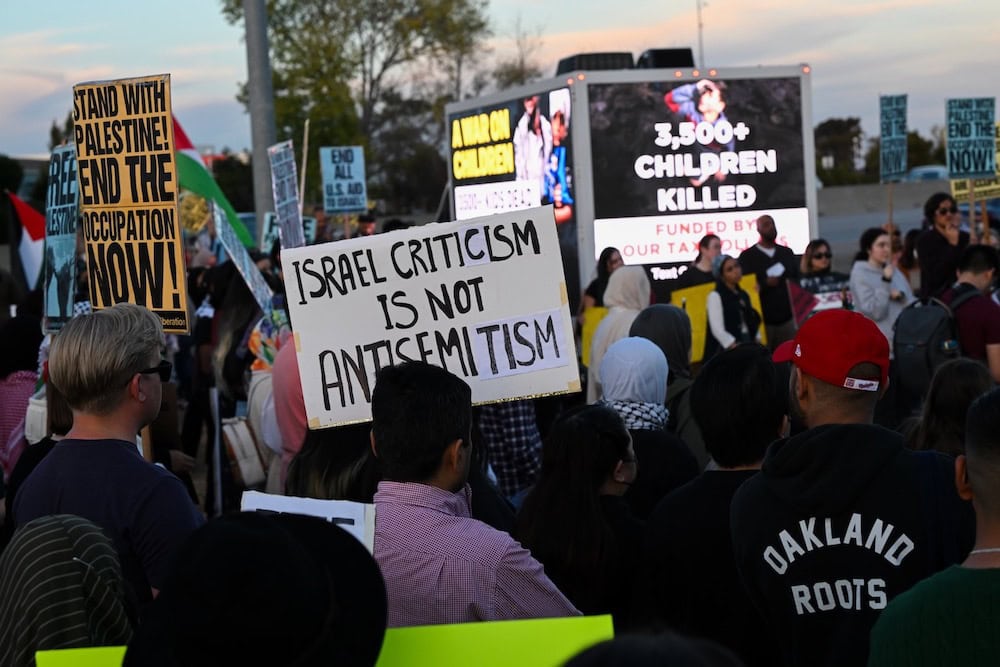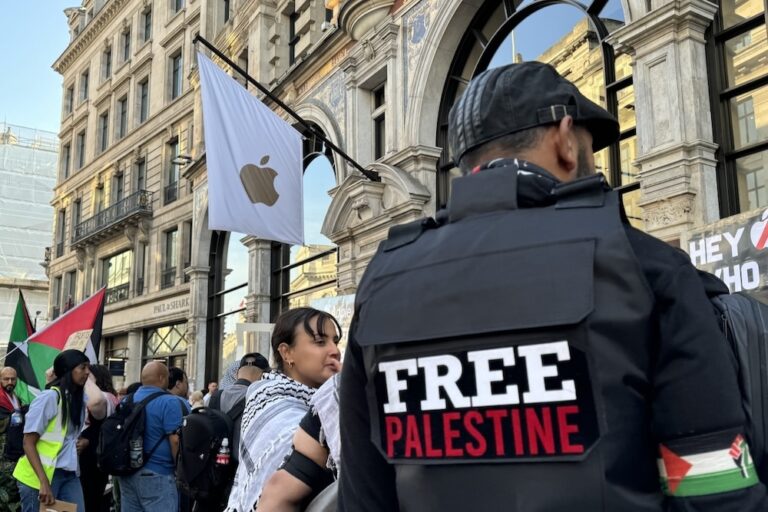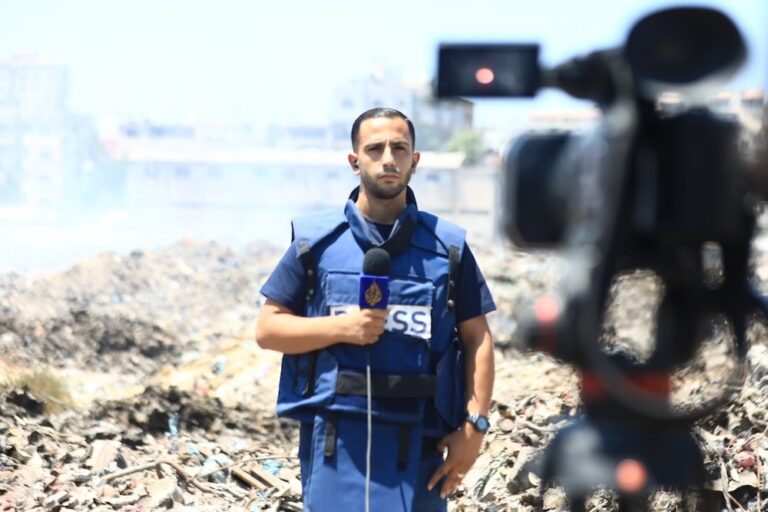Rights groups warn the latest update may restrict freedom of expression by inaccurately equating criticism of Zionism with antisemitism.
This statement was originally published on 7amleh.org on 11 July 2024.
7amleh, Jewish Voice for Peace, and our undersigned partners are disappointed by Meta’s recent policy update, announced on July 9, 2024, due to the strong likelihood that it will lead to further conflation of the political ideology of “Zionism” with Jewish and/or Israeli identities under Meta’s Hate Speech Policy. Having a safe space for all people on Meta and other social media platforms should be their top priority and responsibility. This includes the removal of harmful dehumanizing, or violent content directed at any community. Unfortunately, Meta and Facebook have not adequately protected Palestinians from hate speech in the last decade, which has manifested in millions of conversations inciting violence and genocidal rhetoric during the last nine months of the Israeli war on Gaza.
This policy update runs the risk of severely restricting freedom of expression and stifling legitimate political criticism of Zionists and Zionism by inaccurately equating it with antisemitism. It comes at a time when the Palestinian people in Gaza are suffering from a 9-month-long and ongoing aggression that has claimed the lives of at least 38,000 Palestinians, destroyed over 70,000 homes, and forcibly displaced over 1.9 million people. On July 9, the same day Meta updated its policy restricting criticism of Zionism, UN experts declared that famine had spread across the entire Gaza Strip.
This policy update is the latest example of another instance of Meta executives succumbing to external pressure from stakeholders who are pushing them to adopt the discredited IHRA definition for antisemitism. These stakeholders have been systematically weaponizing the fight against antisemitism, through the controversial IHRA definition, to silence the Palestinian narrative, and more recently, to block any attempt to stop the ongoing genocidal war in Gaza.
In February 2024, a coalition of 73 international civil society organizations, including Amnesty International, warned that this policy could mischaracterize discussions about Zionism, prevent Palestinians from sharing their experiences, and hinder efforts to combat real antisemitism. Moreover, a petition signed by over 52,000 people titled “Meta: We Need to Talk about Genocide” highlighted the importance of social media as a “lifeline [for Palestinians] during the Israeli government’s genocidal war on Gaza,” and that Palestinians should be able to name the political ideology impacting their survival without fearing reprisals. Though this policy update is not a complete conflation of Zionism and Judaism, we feel that it is dangerously close, and will have extremely negative digital rights implications moving forward.
There is a clear distinction between Jewish people and Zionism. Many Jewish individuals are anti-Zionist, and many non-Jewish individuals are Zionist supporters. Zionism is an ideology and a supremacist political movement that can and should be criticized. We are very concerned that the recent changes in Meta will push toward a slippery slope that will allow wider censorship of Palestinians and their allies’ freedom of expression.
Since the war on Gaza began, hate speech and incitement to violence online against Palestinians is at an all-time high, with millions of conversations inciting violence not removed due to the lack of effective hostile-speech classifiers in Hebrew. At a time when the International Court of Justice, the Commission of Inquiry, UN human rights experts, and several states have affirmed the plausibility of genocide in Gaza, Meta must recognize its crucial role and responsibility to adhere to business and human rights principles, international human rights laws, and safeguard freedom of expression.
Harmful, racist, and inciting content against Palestinians, Jews, and any other peoples must be banned and removed on equal grounds and in a transparent way. All groups and ethnicities deserve a safe space on the social media platform. Meta’s discriminatory and biased policy against Palestinians, as proven in the BSR human rights due diligence report, needs to be stopped immediately.



